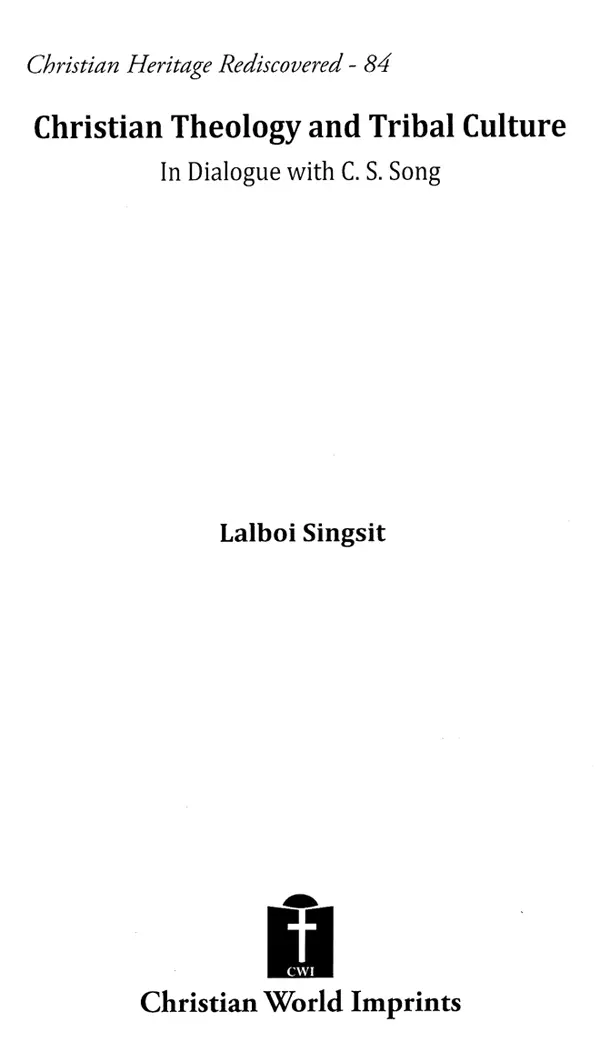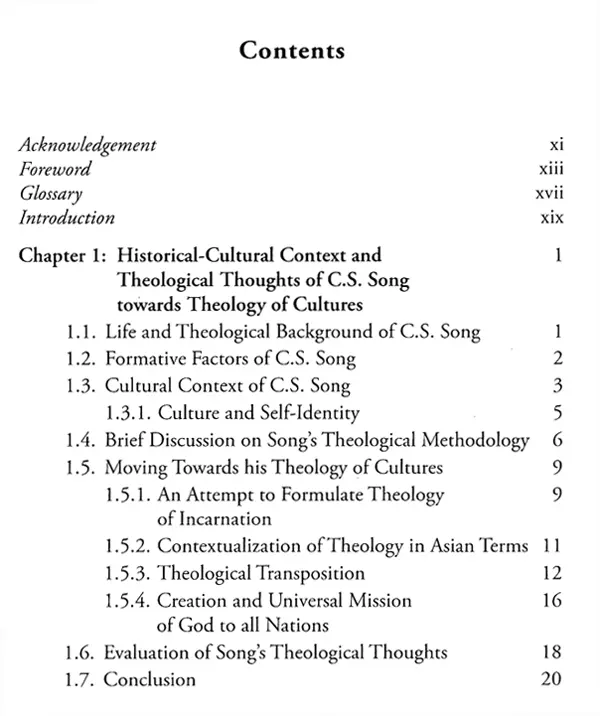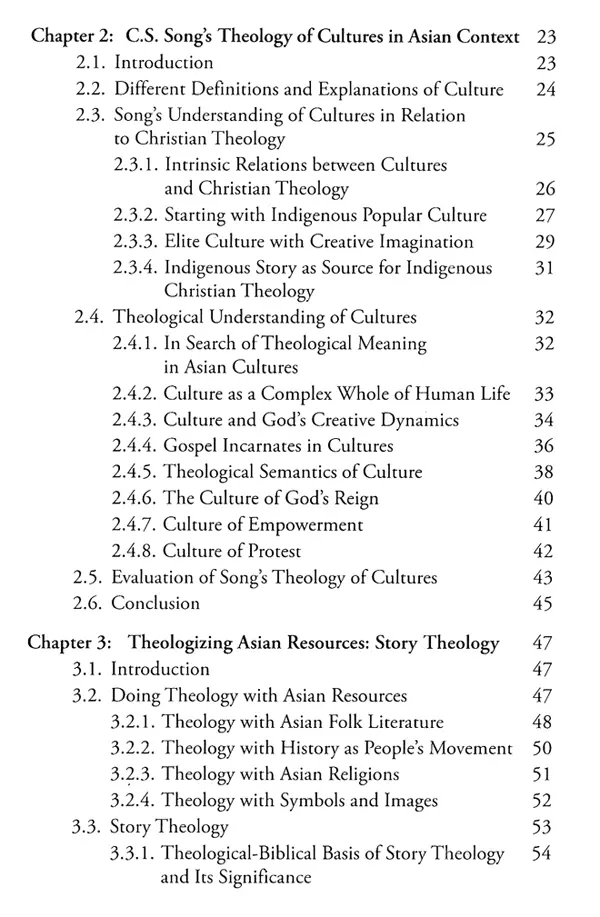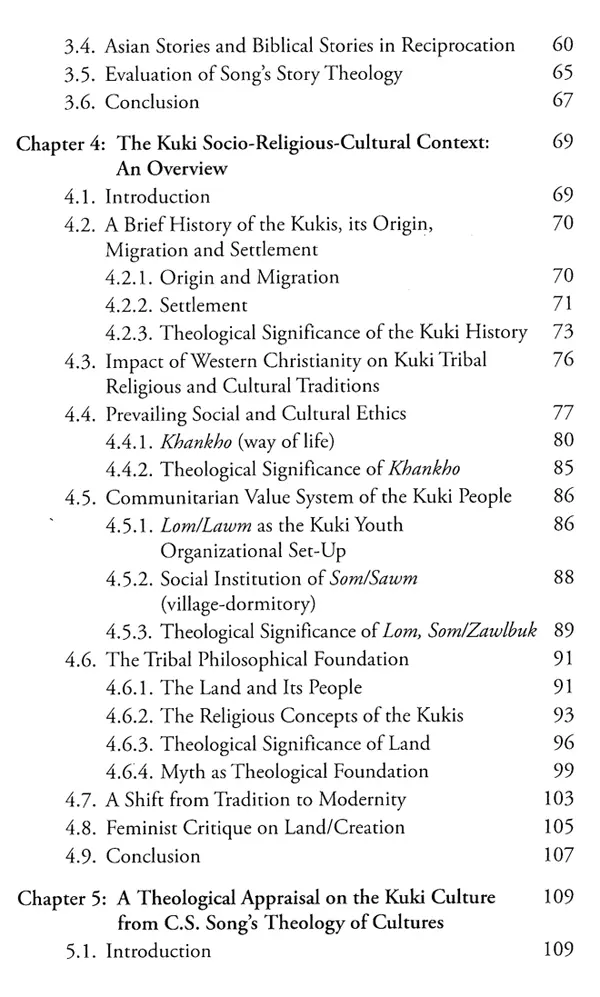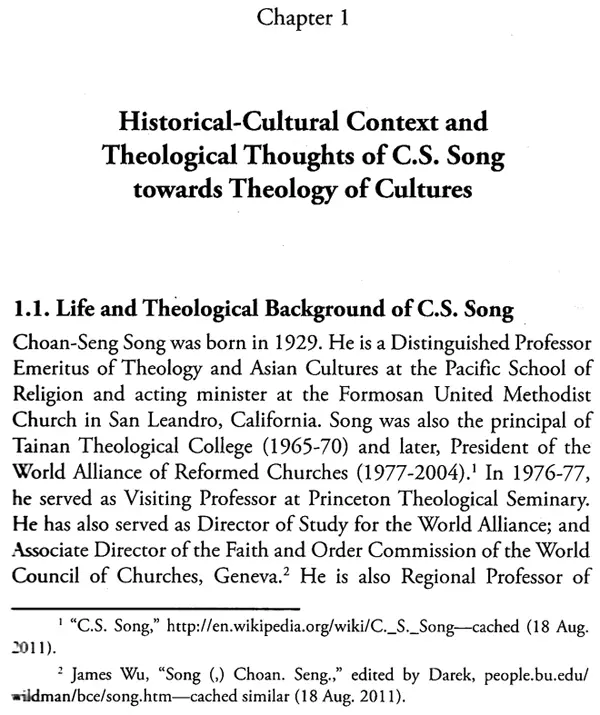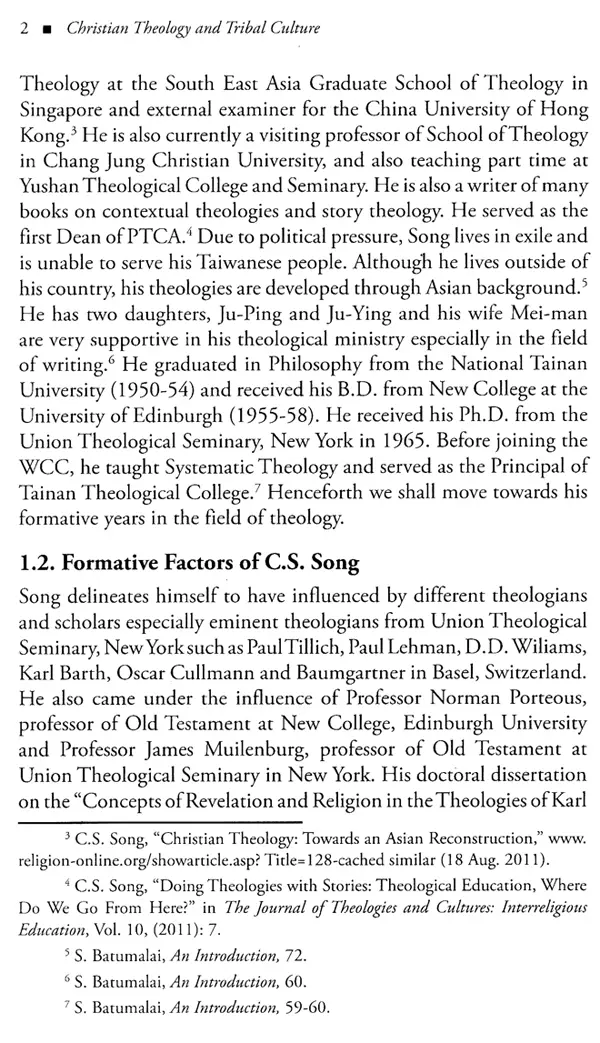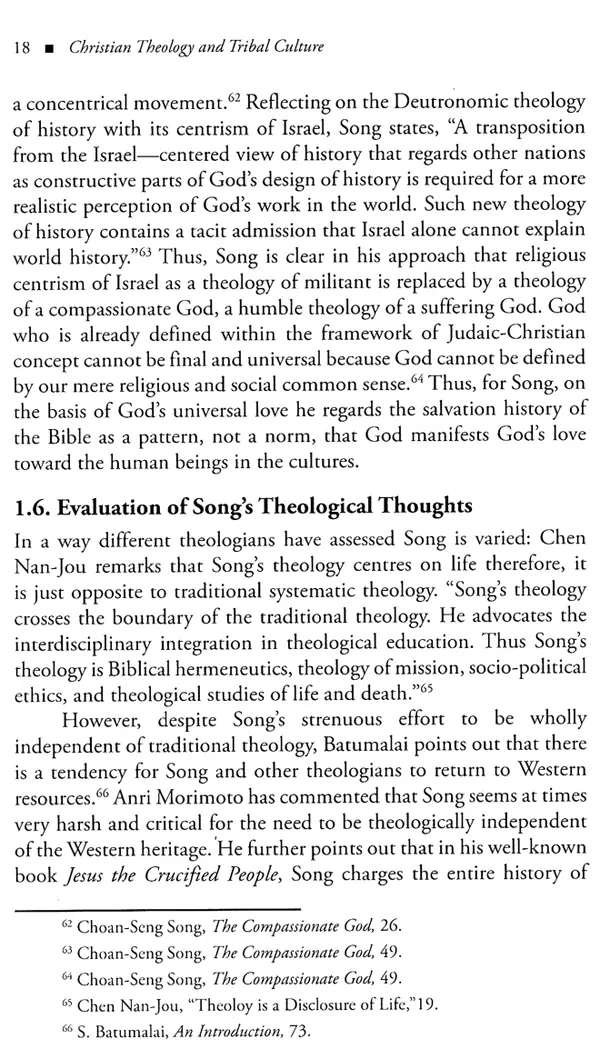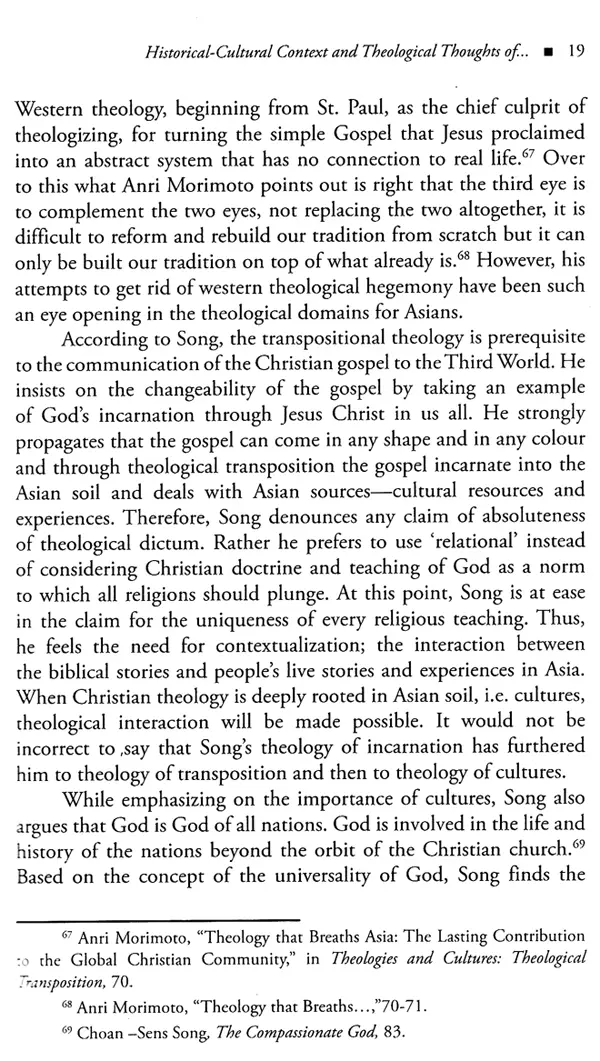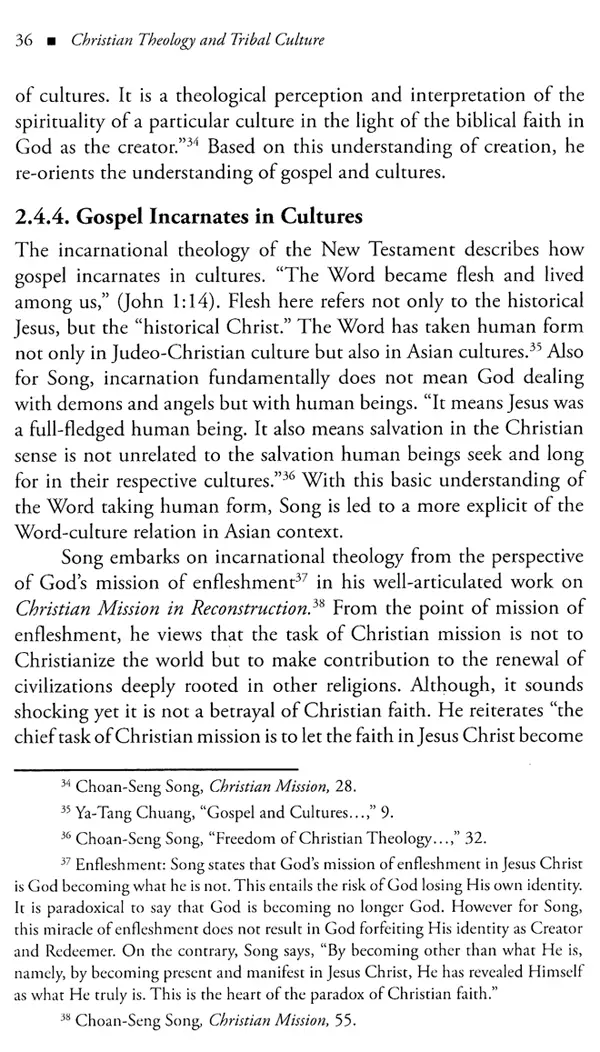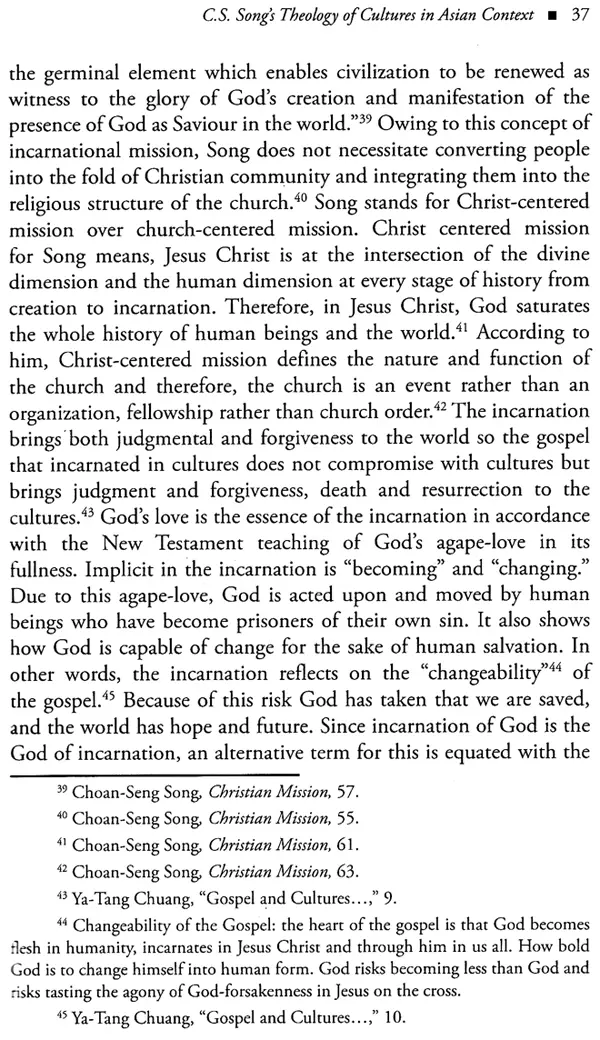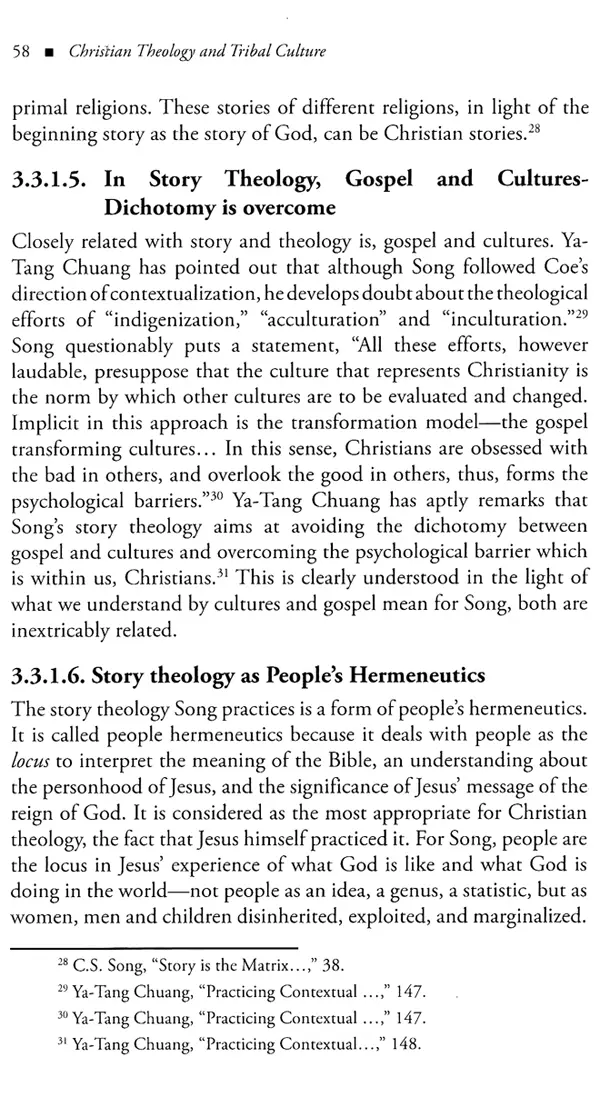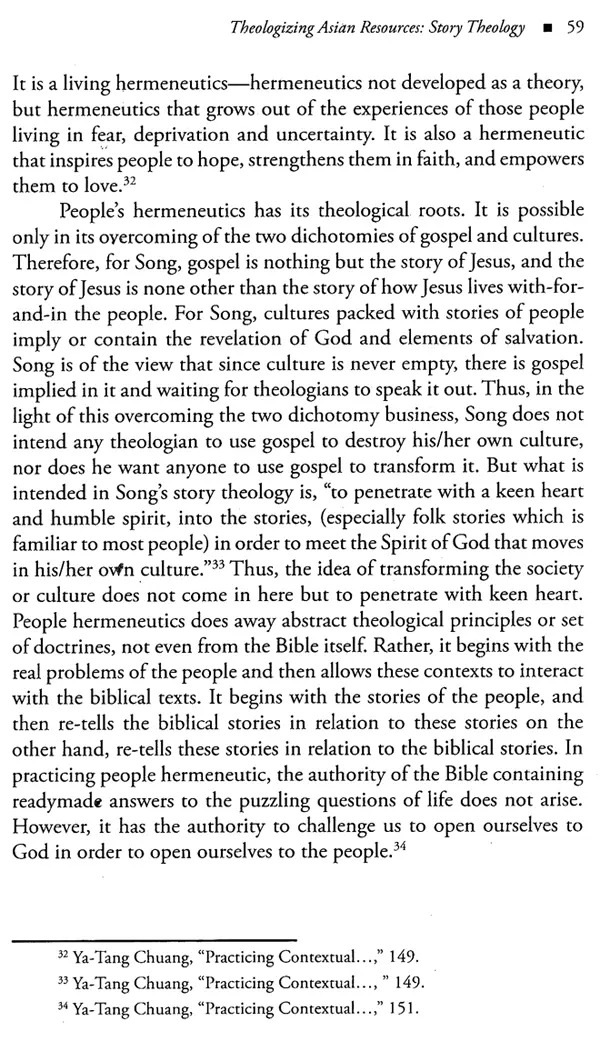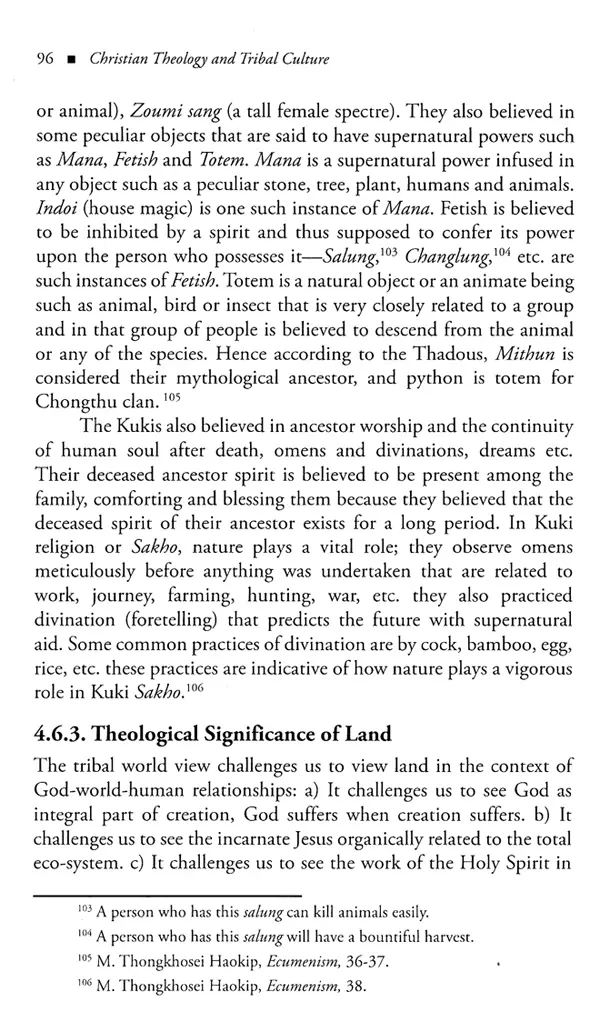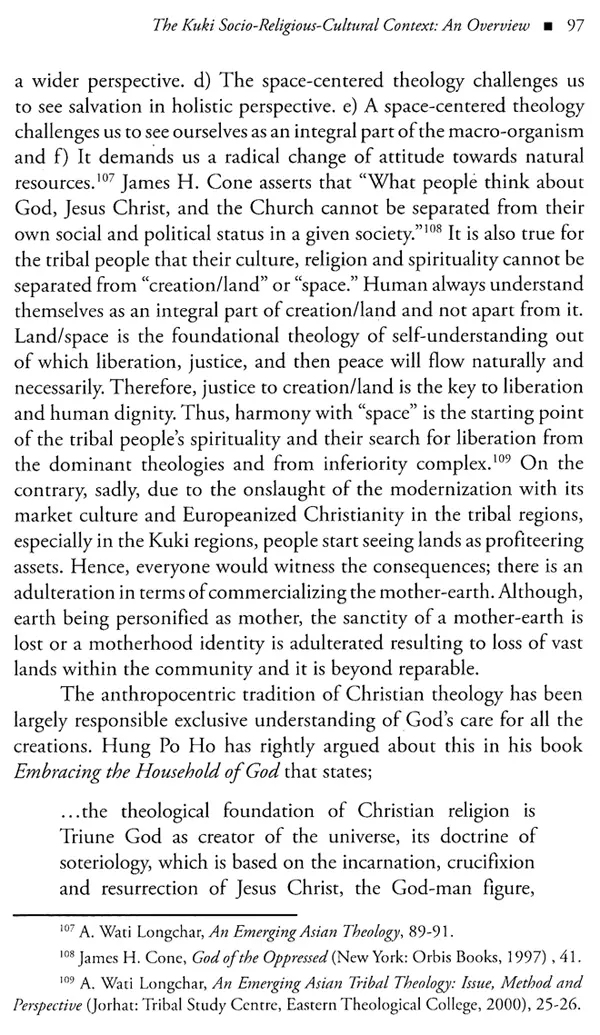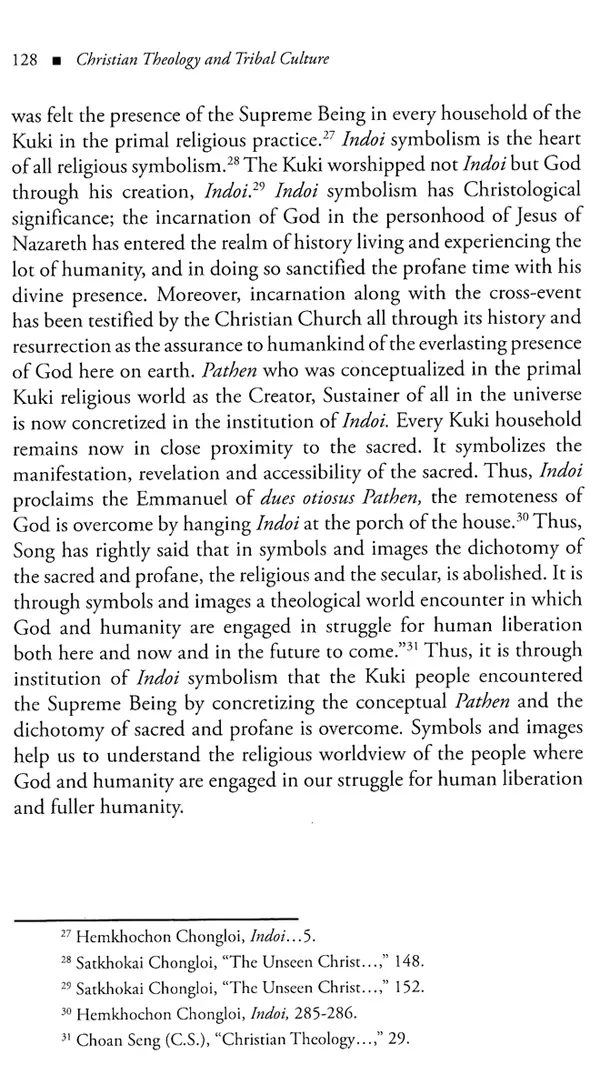
Christian Theology And Tribal Culture - In Dialogue With C.S. Song
Book Specification
| Item Code: | UBA140 |
| Author: | Lalboi Singsit |
| Publisher: | Christian World Imprints, Delhi |
| Language: | English |
| Edition: | 2019 |
| ISBN: | 9789351483809 |
| Pages: | 144 |
| Cover: | HARDCOVER |
| Other Details | 9.00 X 6.00 inch |
| Weight | 390 gm |
Book Description
This book is an appraisal about Christianity from the Kuki tribal perspectives based on C. S. Song's theology of cultures. It is critiquing the present trend of Kuki Christianity that is in western garb at the expense of its culture, in that case even other tribes, too, have no exception. This book attempts to understand the gospel of Christ through the Kuki religious: cultural concepts and not via westernized Christianity with its metaphysical concepts that are in various cases insensible to the natives. A Christianity presented to us by the missionaries was a divided and colonial Christianity packed with western theological outlook. So, Song's theology of cultures is considered more appropriate by the author, to address the religious-cultural grievances of the Kuki people that have been disoriented by the colonial Christianity.
Mr. Lalboi Singsit hails from Sirhima village, Medziphema town, Nagaland. He is the fifth one among the ten children of Mr. Tongsat Singsit and Mrs. Lamlhai Singsit. He completed his bachelor of Divinity degree in 2007 from Clark Theological College, Mokokchung. Nagaland. He devoted three years in doing field work for Kuki Baptist Association, Nagaland. In 2012, he further pursued his M.Th. in Christian Theology at the North India Institute of Post Graduate Theological Studies (NIIPGTS), i.e., jointly sponsored by Serampore College and Bishop's College, Kolkata. Currently, he teaches in Mission India. Theological Seminary, Nagpur, Maharashtra. He is married to Ms. Jenny Chongloi in 2009 and blessed with one son, Satgouthang Joseph Singsit.
Over the years, people have developed different cultural traditions adapting to different environment. Tribal people have developed their culture around the land and its resources, while others have developed in the context of struggle for survival. Their worldview, history, stories, spirituality, community life, symbols are bound to be different.
There is neither inferior nor superior culture. There are oppressive and liberative potentials in all cultures. As a result of many years of colonization, the dominated or tribal traditions are demonized and seen as uncivilized while western culture is held superior and civilized way of life. But one should know that it is a matter of priority. Tribal people give more priority to protection of environment because the survival future humanity depends on land and its resources. All the cultural and religious practices are geared toward protection of environment. In other words, contrary to the colonizers description of the land as 'wilderness' or 'empty space', tribal's worldview is radically related to the land, mountains, rocks, the entire cosmic universe and everything therein. For them, the land is the temple (cathedral), university, hospital, sustenance, the vast hall where we congregate and celebrate, and their parent and life. It is in the land that we worship, heal the sick, educate their children, and feed the people. The loss of land and the destruction of the tribal people's environment is an affront to identities, the loss of spirituality and self-determining existence. If the land and its resources are not protected, the family, clan and village and the tribe's identity and culture too would be lost. For tribals, land is thus more than just a habitat or a political boundary; it is the basis of their social organization, economic system and cultural identification. While in the western worldview, humanity is the ontological basis of all realities, the land is the basis of all realities - human selfhood and identity in indigenous worldview. Even the understanding of God differs. In western thinking, nature is something detached or outside of God. But for tribal people, God cannot be perceived apart from creation; God is in creation. The earth is sacred because God indwells in creation. Manipulation and exploitation of environment is fully justified in western ethics. For tribal people, it is rather adaptation to environment because the earth is sacred and their mother. How can we sell and exploit our mother! Therefore, viewing western culture as superior is wrong and this colonial mind-set must be changed.
Various reflections on Choan-Seng Song's' theology of cultures have been seen in Asian journals and articles at present. But it is rare or not at all seen such as A Study on C.S. Song's Theology of Cultures from Indian Perspective or particularly from the Kuki tribal perspective. Therefore, this book, Christian Theology and Tribal Culture: In dialogue with C. S. Song is first of its kind. Well, many may have been puzzled, confused and shocked those spellbound by time-honoured theological concepts and norms of Western theology as to whether this could be part of Christian theology? If not, distressed in a way culture has been incorporated into Christian theology assuming that Christian theology has to do only with metaphysics, lofty ideals, spiritual and divine things such as redemption from sin (salvation), church and consummation (Kingdom of God, heaven and hell) and thus, nothing to do with one's culture.
